As a millennial who will no longer receive the massive bonuses my parents used to, I have long given up on the possibility of owning a car. I’ve also tried taking public transport, but sniffing sweaty armpits, being *tsked* at every day and breathing in someone else’s bodily gases simply isn’t my thing.
With all this talk about Singapore trying to be a car-lite city, I decided to see if it was legitimately possible for us to adopt cycling as a way of life. That’s why I spent 365 days riding from Jurong East to Mothership’s office in Orchard.
So here are 21 things I learned from doing that:
1. Cycle often enough, and you can beat public transport
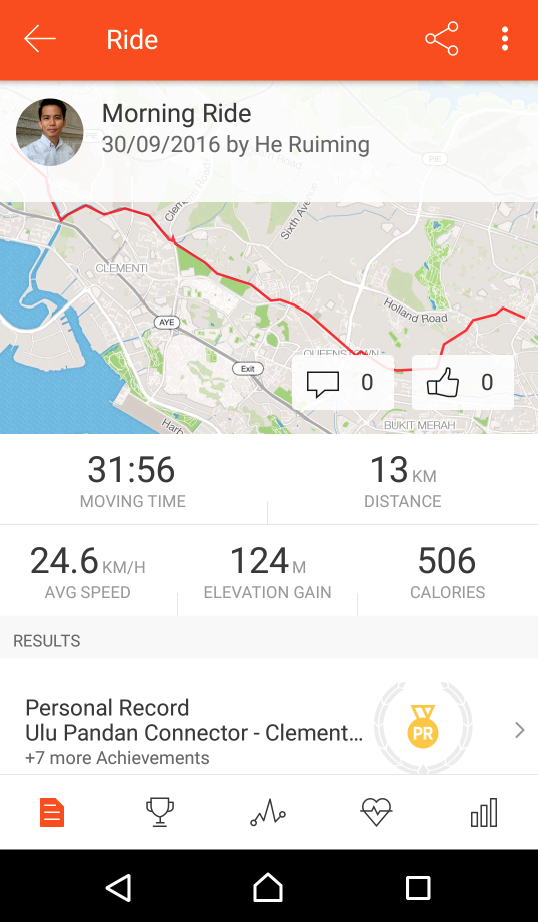 Download Strava. It's good.
Download Strava. It's good.
The average speed of public buses in 2012 was 17.8km/h. If you’re fit enough (and you will be), that’s an easy number to beat.
The first time I made the 12km journey from Jurong to Orchard, it took me an hour and a half. Fast forward two months, and I was completing the journey in under 40 minutes.
2. Take the leftmost lane
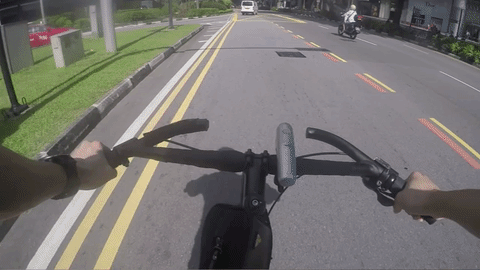 Eh, must give credit when it's due. Thank you taxi uncle for slowing down and not killing me.
Eh, must give credit when it's due. Thank you taxi uncle for slowing down and not killing me.
Contrary to popular belief, the majority of Singaporean drivers are generally an okay bunch, so long as you keep to the leftmost lane.
Of course, that doesn’t mean that you can’t overtake vehicles on the left if they are too slow. Just go back to the left lane after you’re done with that.
3. Choose quieter roads
Taking main roads may be a more direct path to your workplace, but smaller roads have less traffic and decrease your chances of dying.
Also, it's illegal to cycle on the expressway. You know, just in case you didn't already know that.
4. Bus lanes are your friend
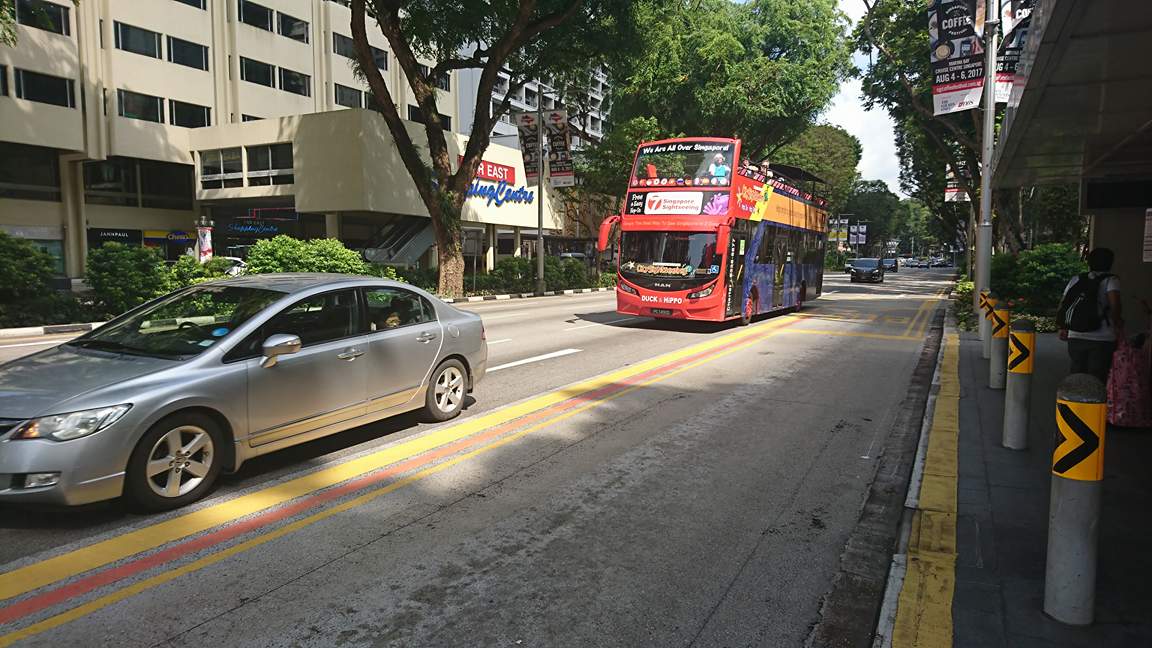 Full day bus lanes. My favourite.
Full day bus lanes. My favourite.
To survive on the road as long as possible, it’s best to minimise contact with any other type of vehicle. By staying in the bus lane, you limit the vehicles you interact with to buses (duh! Well, and perhaps some rogue other vehicles hoping to be fined).
When you’re choosing your route to work, try to pick one with an all-day bus lane. And yes, you are allowed, and it is legal, to cycle on the bus lane (see page 22, point 8).
5. Try not to turn right when you’re riding
Yes, it’s completely legal for a bicycle to be in the right lane if they are turning right. But many drivers are idiots at the highway code and will honk at you for attempting this.
To avoid conflict and going viral on social media, I prefer to just stop at the pedestrian crossing on the left lane, get off my bike, and wheel it across the junction.
6. Stay at least 1m away when passing parked cars
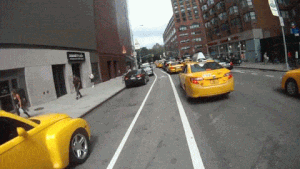 Image from here
Image from here
Because sometimes doors swing open and you’ll experience the brief sensation of flight.
And it won't end well for you, obviously.
[related_story]
7. Park connectors are still the safest
Sure, you might fall down occasionally, but at least a lorry won’t go over your head and turn it into a watermelon. Here’s a piece of advice: If there’s a park connector, use it as much as possible.
 You also get to see nice sunsets when you're not constantly on the lookout for cars. (Photo by He Ruiming)
You also get to see nice sunsets when you're not constantly on the lookout for cars. (Photo by He Ruiming)
8. Don’t be an a**hole on the pavements
Many cyclists ring their bell repeatedly whilst on the pavement, expecting pedestrians to give way to them. Here’s the thing: cyclists should be the ones giving way.
People letting you pass is a privilege, not a right. Don’t take it for granted.
Note: If someone is plugged into headphones and can’t hear your bell, just follow behind slowly and overtake when the pathway widens.
9. You don’t need an expensive bike to cycle to work
 Polygon Path 2, not the fastest, lightest or prettiest bike around, but it's a good starter. Retails for approx. $600 brand new. Image from here
Polygon Path 2, not the fastest, lightest or prettiest bike around, but it's a good starter. Retails for approx. $600 brand new. Image from here
Just avoid bikes that you can buy from the likes of Giant or FairPrice Xtra. The most affordable "decent" bike brand, in my view, would be Polygon. Either that or you can get a bike second-hand from Carousell or Togoparts. Expect to spend at least $300-$500 for a decent bike.
Don’t cheap out – buy once, cry once.
Sounds expensive, but cycle for six months and you would have broken even.
10. Try out your bicycle before buying
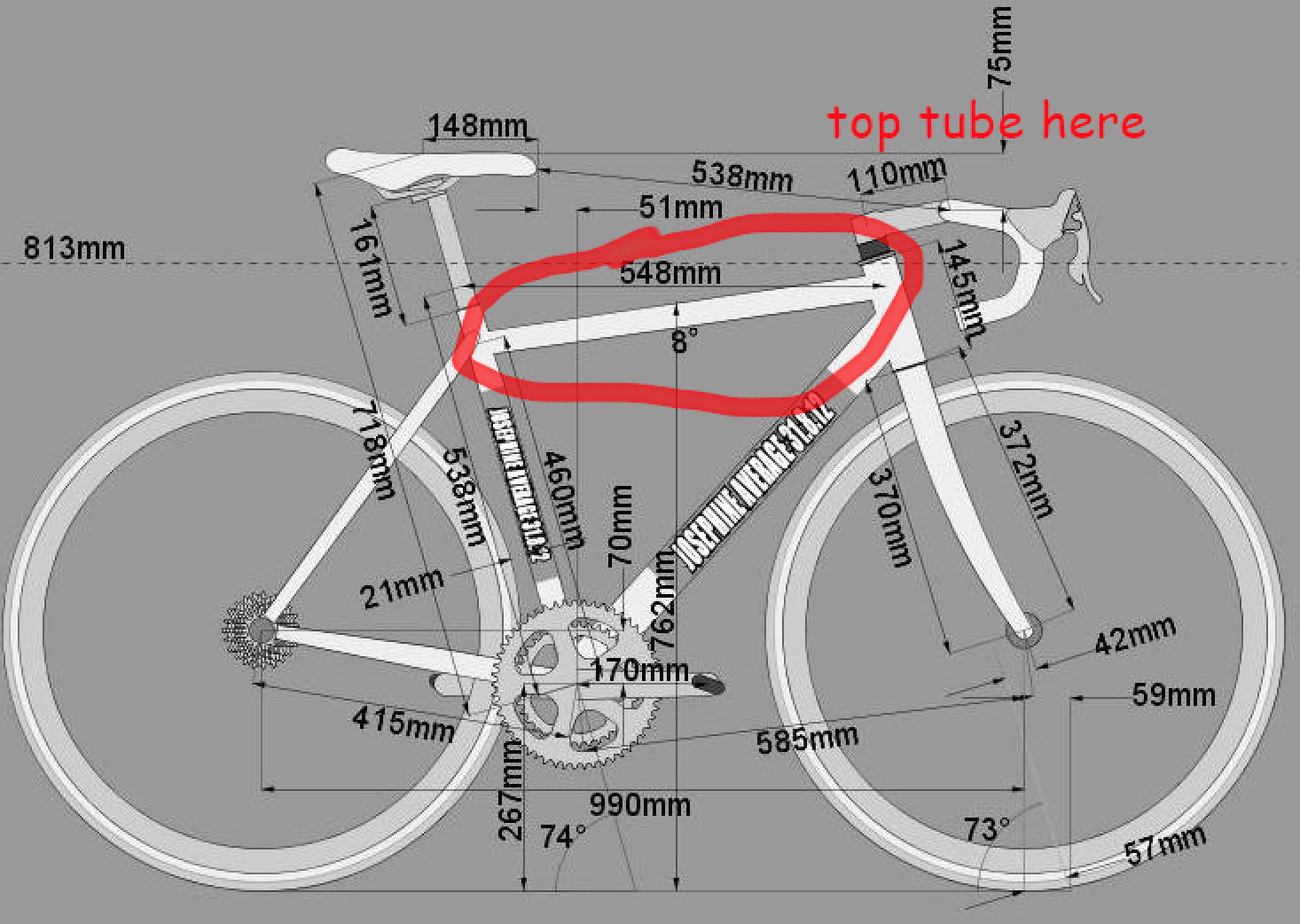 Image from here
Image from here
Seems like a no brainer, but do your due diligence. As a rough guide, you should be able to stand over the bike’s top tube without it hitting your … sensitive parts.
11. If you’re a new cyclist, don’t get a road bike
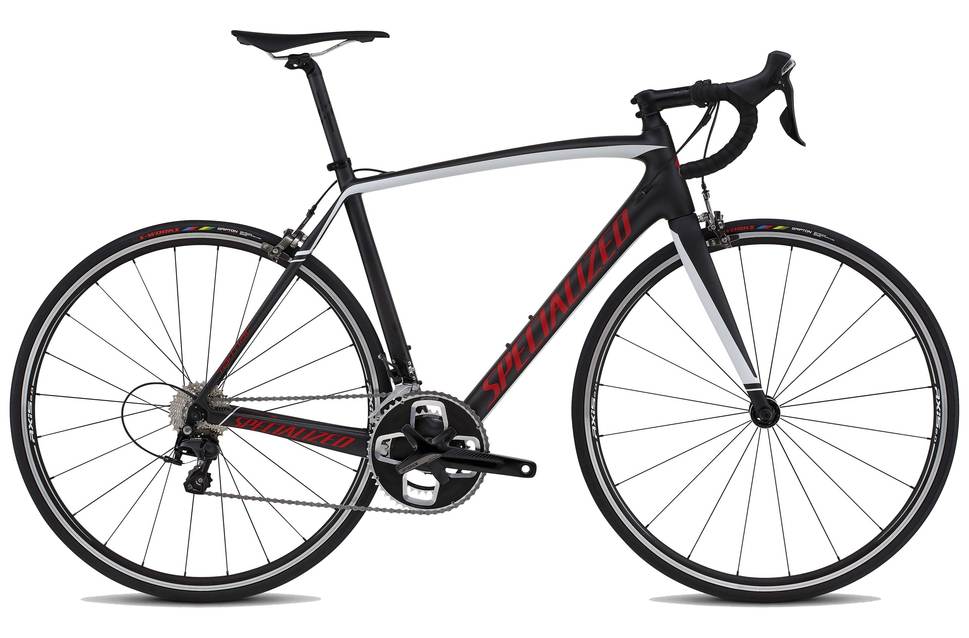 This is a road bike. Image from here
This is a road bike. Image from here
Get a road bike and you’re pretty much limited to cycling on the roads. Not a good idea if you’re a new cyclist. Singapore’s pavements and park connectors can be full of uneven sections, which can be hard to navigate with a road bike’s skinny tyres.
Take a look at mountain bikes or hybrids instead.
12. You can save some serious $$$
 Gif via giphy
Gif via giphy
I spent around $120 a month when I took public transport + occasional taxis. $120 x 12 = $1440 saved, and that's a conservative estimate.
13. You can drop your gym membership
You can burn as much as 500 calories per day cycling – more than enough exercise for a day. It’s a great way to be leaner and fitter without putting too much impact on your knees.
14. Wet weather considerations
Rain before you leave home = Don't cycle.
Rain while cycling = Stop and see if you can wait it out. If not, put your stuff into plastic bags and pedal on.
15. Don’t put your bike out in the open
Think Singapore is crime-free? Leave your bike out overnight and watch the front wheel disappear. Magic.
16. You have two options for carrying your work stuff
Backpacks are for when you don't have a lot of shit to bring to work.
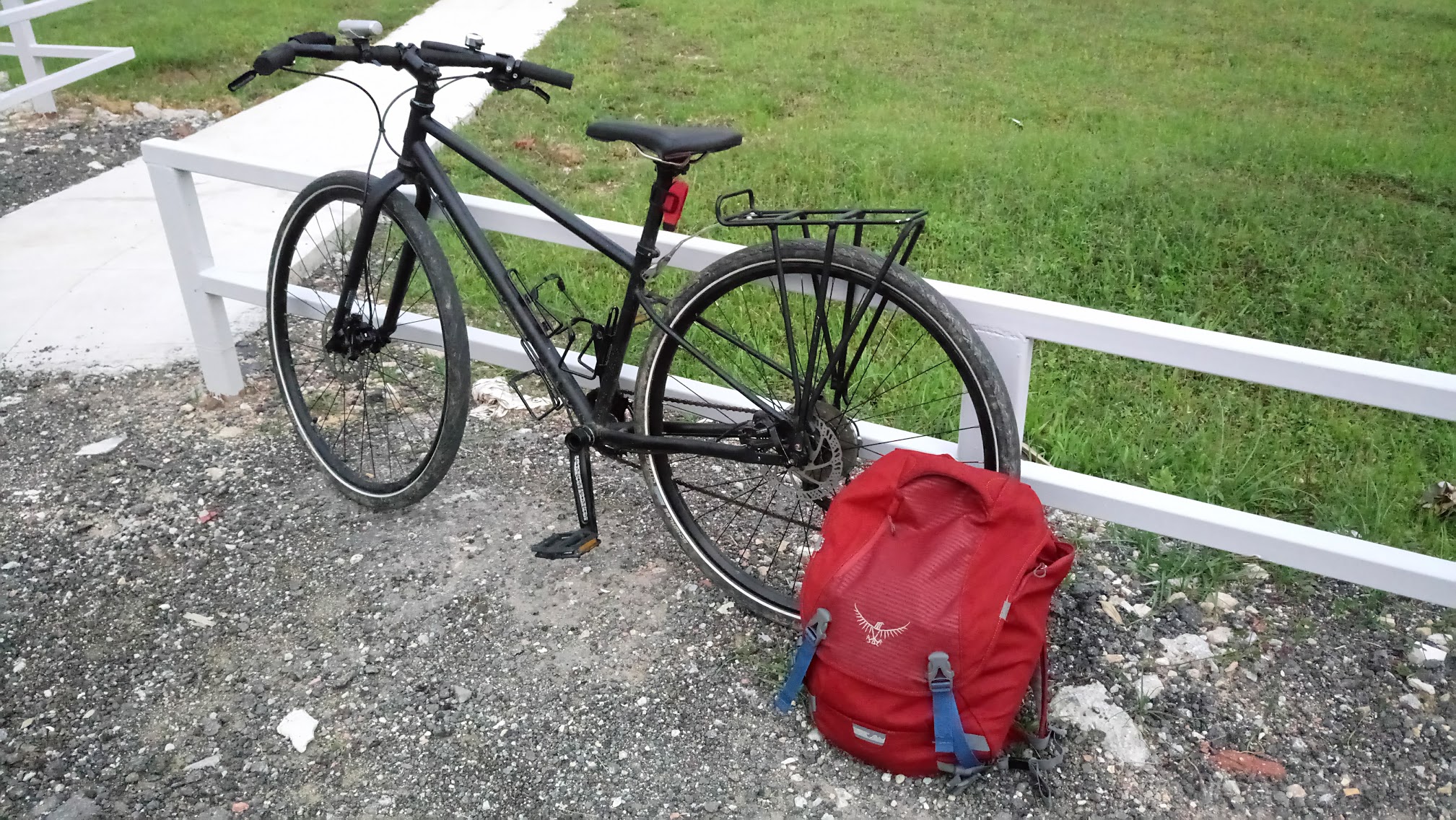 Laptop + a change of clothes + toiletries = fits into a 30L backpack
Laptop + a change of clothes + toiletries = fits into a 30L backpack
Panniers are for when you have lots of shit to bring to work. You'll need a rack if you want to use panniers.
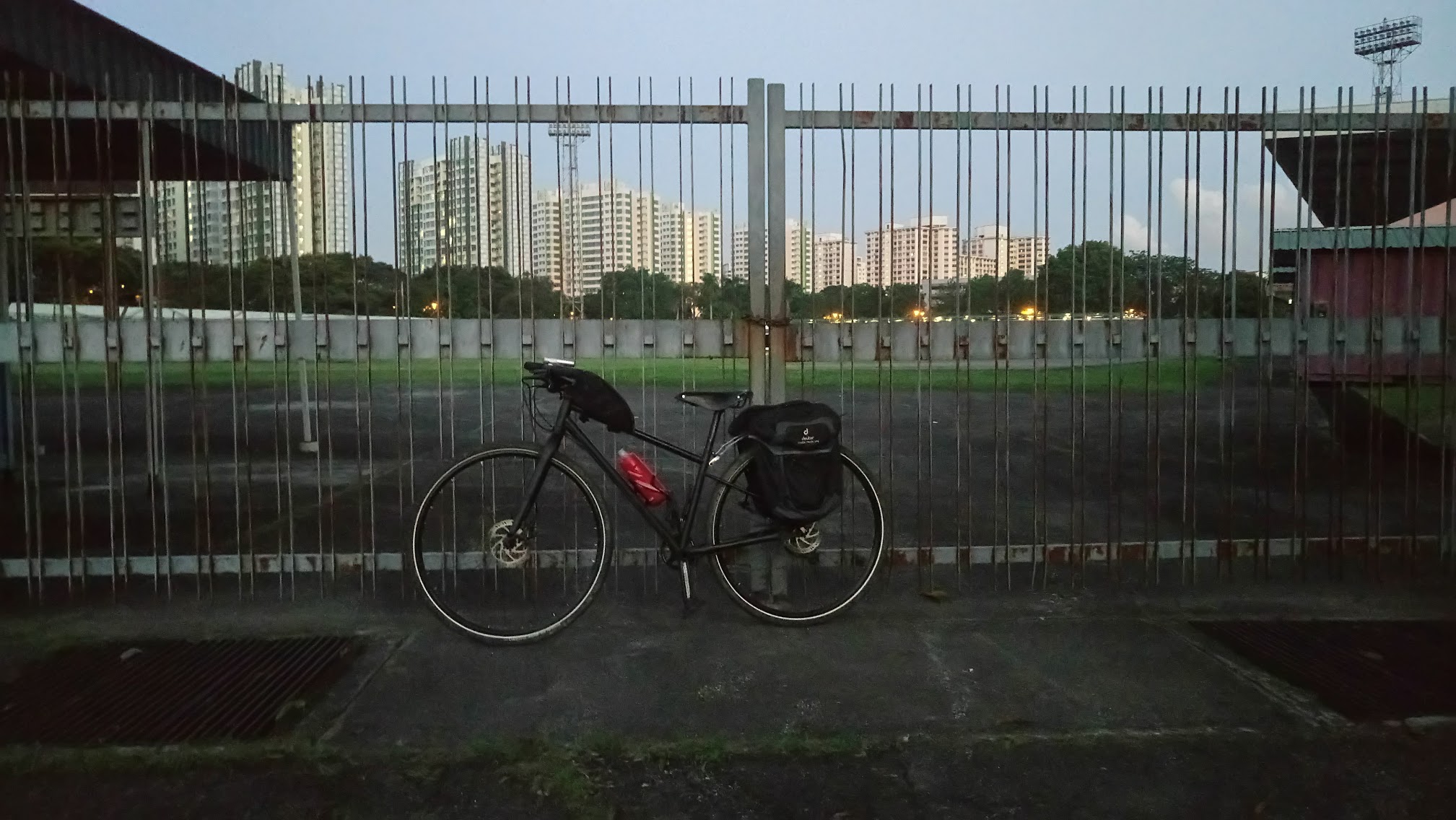 Laptop + change of clothes + blazer + work shoes + packed lunch
Laptop + change of clothes + blazer + work shoes + packed lunch
Or you can just leave all your work stuff at the office. Cause you know, work-life balance.
17. You don't have to wear skin-tight clothes to cycle
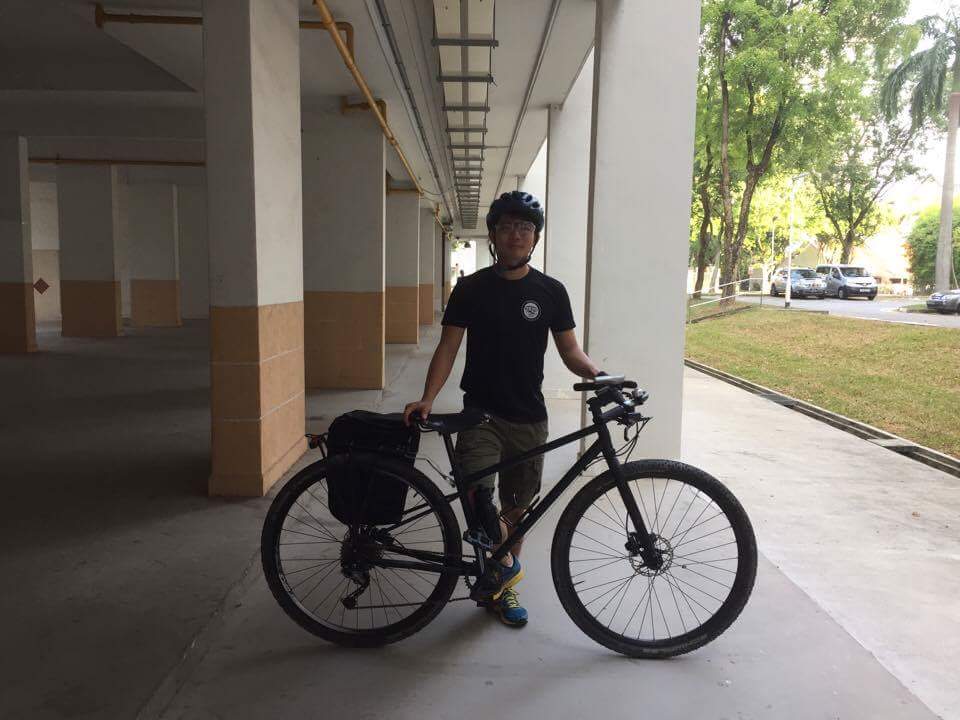 Clear glasses are good for blocking dust and sand that vehicles kick up. (Photo by He Ruiming)
Clear glasses are good for blocking dust and sand that vehicles kick up. (Photo by He Ruiming)
Cycling jerseys and body-hugging tights are not for everyone. Unless you’re serious about being aerodynamic and all, comfort should always be more important. Just use your e-mart credits to buy can already (if you are an NSman; if not, comfortable shorts and a light tee should do).
In case you are wondering, though, jeans are a very bad idea.
18. Get puncture-proof tyres
Three words. Schwalbe Marathon Plus.
19. Or even better, make sure you know how to do basic repairs
Try having to deal with a puncture when you’re 9km away from work. Or a broken chain. Pushing a bicycle that far will most certainly ruin your entire day. Being able to repair your bike, however, will ensure you get to work... eventually.
Besides, bike shops here charge exorbitant prices for repairs. Save some money and YouTube it yourself.
20. Make sure your office has shower facilities before even thinking of cycling to work
Self-explanatory. Nobody likes people with poor hygiene.
21. Deodorant. And spare underpants.
You’ll need them. Both. Trust me.
Here’s a warning: Cycling will make you a deviant in conformist, car-obsessed Singapore. People will think you’re crazy. But hey, if you’re even seriously considering cycling to work, you’re probably at least a bit crazy.
Good news? Your bike won’t put in you debt for 10 years. You won’t need to worry about fuel prices surging. And if you take good care of it, it won’t break down once every few days.
Which is more than can be said than other forms of transport.
Hurhur.
Top photo by He Ruiming
Here are totally unrelated but equally interesting articles:
5 types of NDP-goers you’ll see on public transport
This is cereals news: BreadTalk to launch new cereal floss bun, available for 8 days only
One of Us: Nothing to see here, it’s just a bowling alley supervisor turned kickass club DJ
If you like what you read, follow us on Facebook, Instagram, Twitter and Telegram to get the latest updates.
